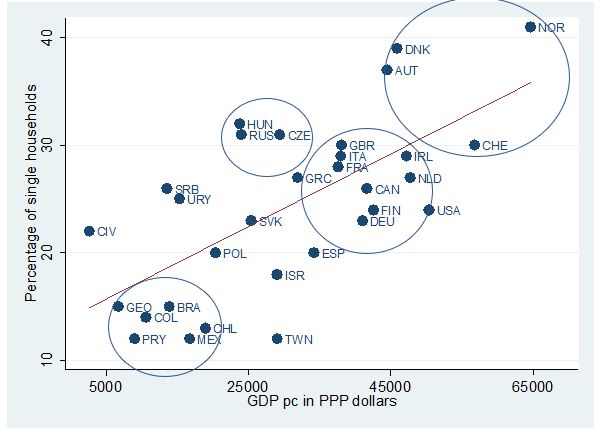Most of Ch 5 in "Capitalism, Alone" deals with the commodification (commercialization) of daily life.
This is not just a "cute" topic. It is fundamental. Once we rent out homes, cars etc. they are transformed from personal property into capital.
This is not just a "cute" topic. It is fundamental. Once we rent out homes, cars etc. they are transformed from personal property into capital.
When in addition, the difference between leisure time and remunerative activities blends, and we put shadow price (foregone income) on every activity, capitalism enters home. Think of "influencers".
On the supply side, the process is facilitated by ability to purchase on the market goods and services that were traditionally non-commercialized and produced within the household (cooking, cleaning, care of the elderly, dog-walkers).
This means that economic advantages of cohabitation are less important, and if rich, we can purchase all what households habitually provide, and also enjoy the freedom of a single life.
And indeed, we find that in richer countries the average HH size is much smaller. The economies of scale (shared heating, electricity, internet costs) are given up for personal independence, less interaction with others.
"L& #39;enfer c& #39;est les autres"
"L& #39;enfer c& #39;est les autres"
And this is not just because in richer countries people have fewer children. The share of single-person households increases with average income, thus clearly revealing a preference for solo living in hyper-commercialized societies.
@threadreaderapp unroll

 Read on Twitter
Read on Twitter



